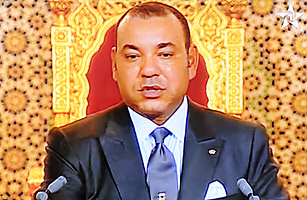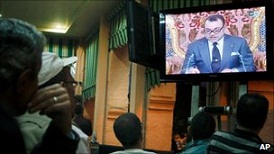Morocco King Mohammad VI renounced some of his political powers transferring them to the Prime Minister and the Parliament. However, protestors were not satisfied with the changes.
Morocco King Mohammad VI proposed a series of changes to the constitution that would make a democratic system out of the country’s regime.
In a live statement he delivered Friday, King Mohammad announced that the prime minister would become “president of the government”, he will be appointed by the party that received the most votes in the elections, and has the authority to appoint government officials.
The king renounced some of his political powers and strengthened those of the prime ministry and the parliament. However, he maintained the monarch’s complete power over security, army, and religious matters in the country; and even though the word “sacred” is no longer required in referring to the 47-year-old king, he still emphasizes his “inviolability”.
"We have managed to develop a new democratic constitutional charter”, he said, pointing out that the changes will be put to referendum on the first of July.
This step came in response to large protests that have been taking place in the country for months.
On their part, Moroccan protestors were not satisfied with King Mohammad’s proposal. Reuters news agency quoted activist Najib Chawki saying that the constitutional changes “do not respond to the essence of our demands, which is establishing a parliamentary monarchy. We are basically moving from a de facto absolute monarchy to a constitutional monarchy”.
